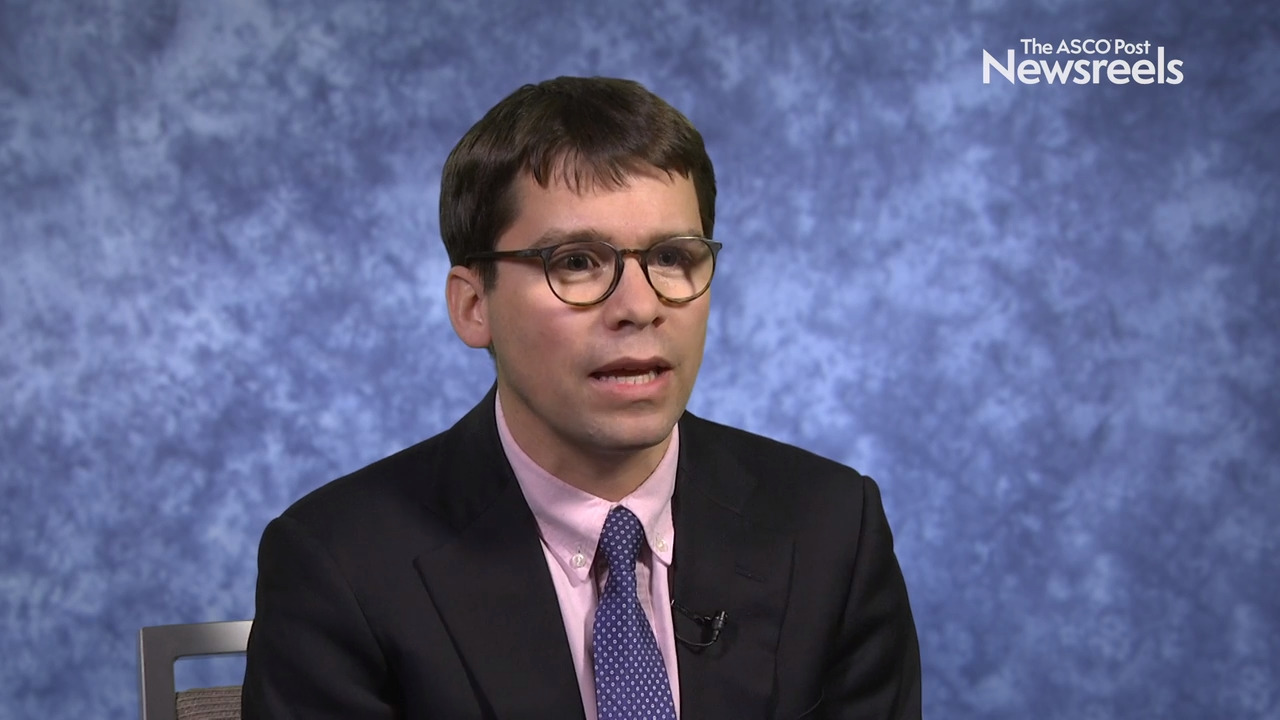Ralph R. Weichselbaum, MD, on Oligometastatic Cancer: The Role of Radioimmunotherapy
2019 San Antonio Breast Cancer Symposium
Ralph R. Weichselbaum, MD, of the University of Chicago, summarizes a plenary lecture in which he presented data that could guide future clinical strategies: studies supporting the basis and classification of oligometastatic disease, including breast cancer; and basic and clinical data on radioimmunotherapy (Abstract PL2).
Ariella B. Hanker, PhD, of UT Southwestern Medical Center, discusses data showing that breast cancers expressing co-occurring HER2 and HER3 mutations may require the addition of a phosphoinositide 3-kinase alpha inhibitor to a HER2 tyrosine kinase inhibitor (Abstract GS6-04).
Nadine M. Tung, MD, of Beth Israel Deaconess Medical Center, discusses cisplatin vs doxorubicin/cyclophosphamide (AC) as neoadjuvant treatment in BRCA-mutation carriers with HER2-negative breast cancer. Although cisplatin as a single agent shows activity in this setting, the pathologic complete response with this agent alone is not higher than that with standard AC chemotherapy (Abstract GS6-03).
Hope S. Rugo, MD, of the University of California San Francisco Comprehensive Cancer Center, discusses a retrospective analysis on the effectiveness of the VENTANA PD-L1 SP142 assay, the Dako 22C3 assay, and the VENTANA SP263 assay as predictors of response to atezolizumab plus nab-paclitaxel in patients with metastatic triple-negative breast cancer (Abstract PD1-07).
Rashmi K. Murthy, MD, of The University of Texas MD Anderson Cancer Center, discusses data on the efficacy and safety of tucatinib, trastuzumab, and capecitabine, a treatment regimen under investigation for patients with advanced HER2-positive metastatic breast cancer refractory to standard-of-care regimens (Abstract GS1-01).
Joerg Heil, MD, PhD, of the University Hospital Heidelberg, discusses findings on how accurately this technique can diagnose residual disease and pathologic complete response after neoadjuvant chemotherapy in patients with breast cancer. These data may help tailor, de-escalate, and potentially avoid unnecessary surgeries (Abstract GS5-03).





